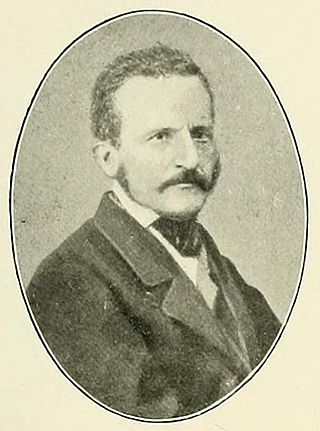Top Qs
Timeline
Chat
Perspective
Giuseppe De Notaris
Italian botanist (1805–1877) From Wikipedia, the free encyclopedia
Remove ads
Giuseppe De Notaris (18 April 1805 – 22 January 1877) was an Italian botanist generally known for his work with cryptogams native to Italy.

Biography
Born 18 April 1805, in Milan, he studied medicine at the University of Pavia, obtaining his medical degree in 1830. Having developed an interest in botany, by 1832 he had abandoned the field of medicine. In 1836, he accepted an assignment at the botanical garden in Turin, and a few years later, was named professor of botany and director of the botanical garden at the University of Genoa (1839). In 1872, he was appointed chair of botany at the University of Rome.[1] Together with Francesco Baglietto, Vincenzo de Cesati and Giuseppe Gabriel Balsamo-Crivelli he edited several exsiccata series.[2]
In the field of mycology, he proposed the fungi family Hypocreaceae (1845).[3] With Antonio Bey Figari (1804–1870), he described numerous species from the family Poaceae.[4] With Figari, he was the binomial co-author of the grass genus Schistachne (synonym Stipagrostis).[5] He also described the lichen genus Buellia.[6] Species with the specific epithet of notarisiana commemorate his name.[7][6]
Remove ads
Selected works
- Muscologiae italicae spicilegium, 1837.
- Syllabus muscorum in Italia et in insulis circumstantibus hucusque cognitorum, 1838.
- Florula Caprariae : sive, Enumeratio plantarum in insula Capraria : vel sponte nascentium vel ad utilitatem latius excultarum, 1839 (with Giuseppe Giacinto Moris).
- Repertorium florae Ligusticae, 1844.
- Agrostograhiae Aegyptiacae fragmenta, 1852 (with Antonio Bey Figari).
- Musci italici, 1862.
- Sferiacei italici, 1863.
- Epilogo della Briologia Italiana, 1869.[8]
Remove ads
See also
References
Wikiwand - on
Seamless Wikipedia browsing. On steroids.
Remove ads
